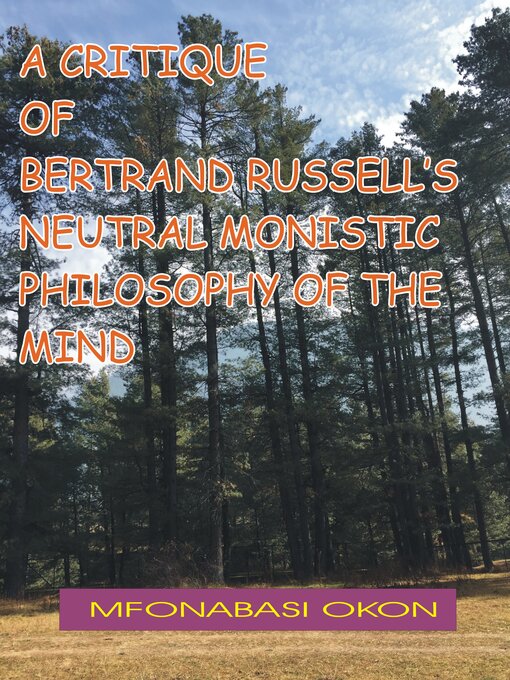ABSTRACT
This work is a Critique of Bertrand Russell's Neutral Monistic Philosophy of Mind with special emphasis on the stages of its development. Neutral monism is a position in metaphysics defended by Mach, James, and Russell in the early twentieth century. It holds that minds and physical objects are essentially two different orderings of the same underlying neutral elements of nature. This study sets out some of the central concepts and the historical background of ideas that inform this doctrine of elements. The study covers the classic neutral monism of Mach, James, and Russell in the study and also considers some criticism about Bertrand Russell's neutral monism in the study. Comparison and criticism of the views expressed at different stages and the interpretations given by critics and commentators, and Russell's replies to them, as also clearing up certain ambiguities and misunderstandings. The chances for a revival of neutral monism are probably slight; its key ideas and starting points lie far from those in contemporary philosophy of mind. A better route might be through the philosophy of science and a deeper understanding of causation. The word count in this long essay is 20,522. The key words in this long essay are Neutral, Monism, Neutral Monism and Philosophy.
